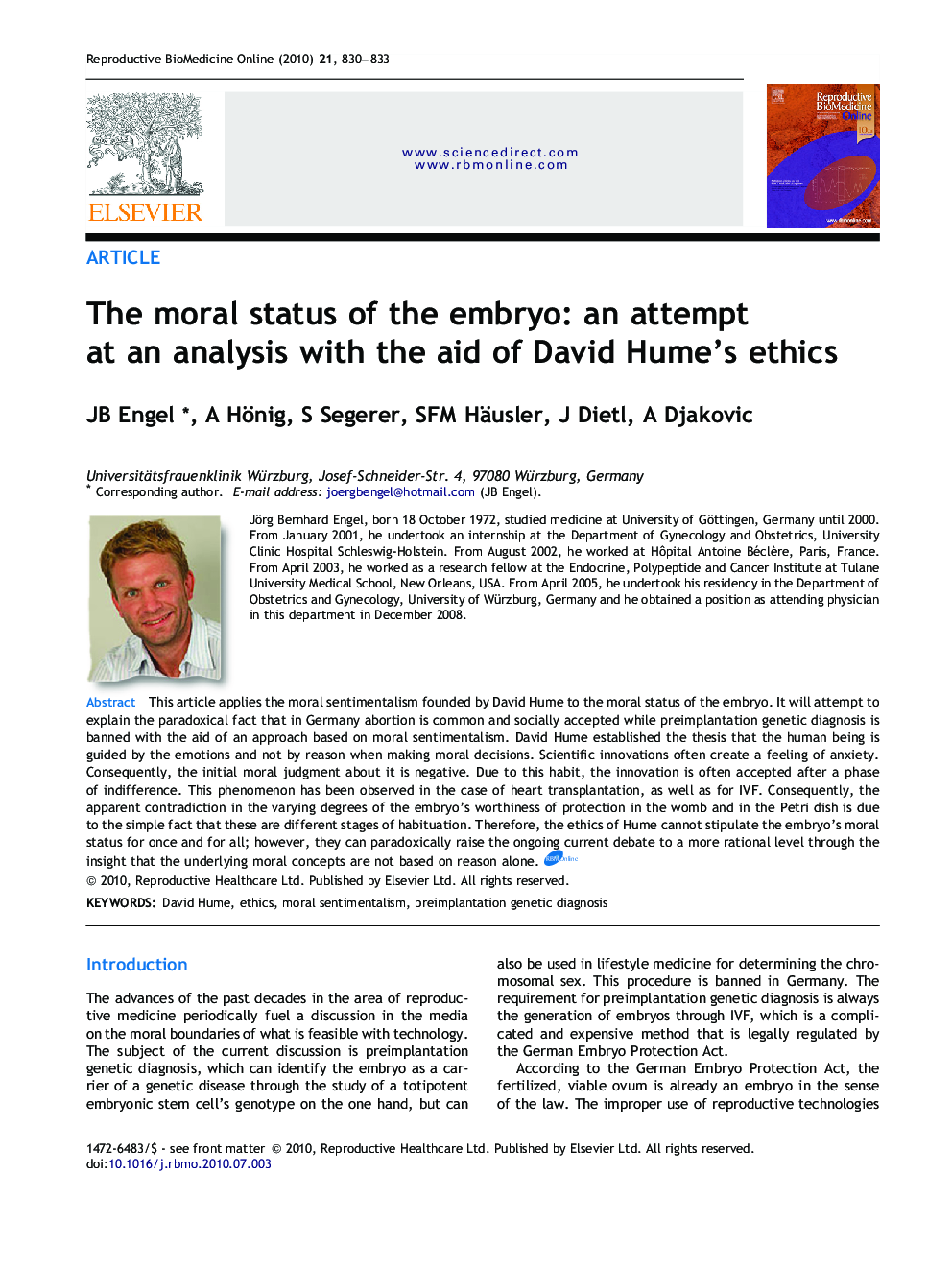| کد مقاله | کد نشریه | سال انتشار | مقاله انگلیسی | نسخه تمام متن |
|---|---|---|---|---|
| 3971492 | 1256767 | 2010 | 4 صفحه PDF | دانلود رایگان |

This article applies the moral sentimentalism founded by David Hume to the moral status of the embryo. It will attempt to explain the paradoxical fact that in Germany abortion is common and socially accepted while preimplantation genetic diagnosis is banned with the aid of an approach based on moral sentimentalism. David Hume established the thesis that the human being is guided by the emotions and not by reason when making moral decisions. Scientific innovations often create a feeling of anxiety. Consequently, the initial moral judgment about it is negative. Due to this habit, the innovation is often accepted after a phase of indifference. This phenomenon has been observed in the case of heart transplantation, as well as for IVF. Consequently, the apparent contradiction in the varying degrees of the embryo’s worthiness of protection in the womb and in the Petri dish is due to the simple fact that these are different stages of habituation. Therefore, the ethics of Hume cannot stipulate the embryo’s moral status for once and for all; however, they can paradoxically raise the ongoing current debate to a more rational level through the insight that the underlying moral concepts are not based on reason alone.The ethics of moral sentimentalism, based on the reflections of David Hume (1711–1767), a Scottish philosopher of the age of enlightenment, are applied to the moral status of the embryo. The fact that abortion is socially accepted in Germany while at the same time preimplantation genetic diagnosis (PGD) is forbidden represents a paradox is explained by the ethical concept of moral sentimentalism. Hume observed that moral reflections and decisions in humans are rather driven by passions than by reason. This speculative concept is supported by recently published neuroimaging studies. Scientific innovations are often seen with distrust because of modern myths such as Huxley’s Brave New World. Also, our Christian background causes a special sensitivity towards science concerning the beginnings of life and, because of Germany’s history, genetic testing has a negative connotation. Thus, a scientific innovation, such as PGD, frequently induces a vague feeling of anxiety. Accordingly, such new methods are at first morally rejected by the majority. However, by sheer force of habit these innovations are frequently met with indifference and finally morally approved in the course of time. This development is observed in different areas of medicine. Therefore, the different moral value of the embryo in the uterus and in the Petri dish are based on different stages of moral adaption and cannot be established as a fixed constant by moral sentimentalism. Clarifying that our moral judgement is not based exclusively on reason and rationality can, however, raise the ongoing debate to a more rational level.
Journal: Reproductive BioMedicine Online - Volume 21, Issue 7, December 2010, Pages 830–833